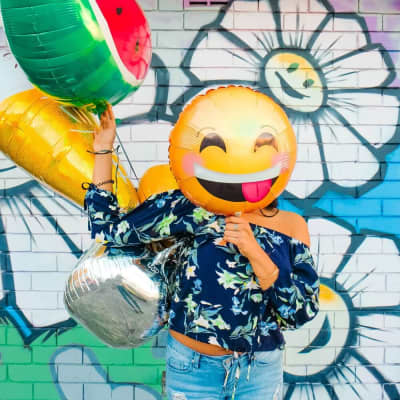A few weeks ago, I was at a low ebb. I couldn't concentrate, thoughts of suicide were growing ever more frequent, I wanted to cry all the time, and I was so tired, it was a struggle to get through the day. It's been like this for more than forty years, and even when I realised what it was, treatment didn't help. Antidepressants only made me feel even more numb. Talking therapies kept me alive, for which I'm eternally grateful, but didn't get me better. I was told by my GP when I was sick, not to do anything, just to record it. We're talking about chronic, treatment-resistant depression. I gradually accepted that my future would be much like my past, and I would drag my miserable body through life and breathe a sweet sigh of relief when it was over.
The first turning point was having a friend suggest that I read "Malignant Sadness" by Lewis Wolpert. I cannot now recall the content of the book, but the effect it had on me lives on. It changed my despair into anger that no better treatments were available for me. I started to look around. I considered ECT but baulked at hearing that it often destroyed musicians ability to play, and I didn't want to risk one of the few things that could bring me some joy. I looked at transcranial magnetic stimulation, but couldn't find a clinic I could afford. I found something, though, which was the decisive turning point.
Last month I visited a hospital in Oxford three times over two weeks for treatment. I now feel a huge weight lifted; I see my Moodscope scores rising daily. I'm getting my energy, concentration, and interest in things back. I feel alive again.
What happened in Oxford? I received three intravenous doses of a fast-acting antidepressant: ketamine. This treatment is not yet mainstream. Although administered within the NHS, it is not a free service, because ketamine is not currently licensed for this purpose.
I first had this treatment nearly three years ago. The effects lasted for a long time until I needed it again. I fully expect to relapse in the future, but it's different knowing that I can access something that will help me so quickly and effectively. Knowing that has changed my life. It's a unique moment, where all the demons of my depressed mind are present, and I can examine them with clarity. It is an opportunity for me to work with them, to overcome some, and rob others of their power so that my next relapse is not so bad.
I hope that this kind of treatment is developed and becomes more widely available because it has the potential to alleviate so much suffering and to give people their lives back.
I am so grateful to the people at the clinic who treated me with such kindness, compassion, and expertise. In my eyes, they work miracles.
Anna
A Moodscope member
We are really pleased that this treatment is working so well for Anna, but feel we need to include some additional information for our members:
Drugs receive a licence if the MHRA approves them as safe and effective for a particular condition. Ketamine is not a licensed treatment for depression. It is used in depression as an ‘off-label’ treatment.
This link tells you more about the treatment offered by the Interventional Psychiatry service in Oxford:



Comments
You need to be Logged In and a Moodscope Subscriber to Comment and Read Comments